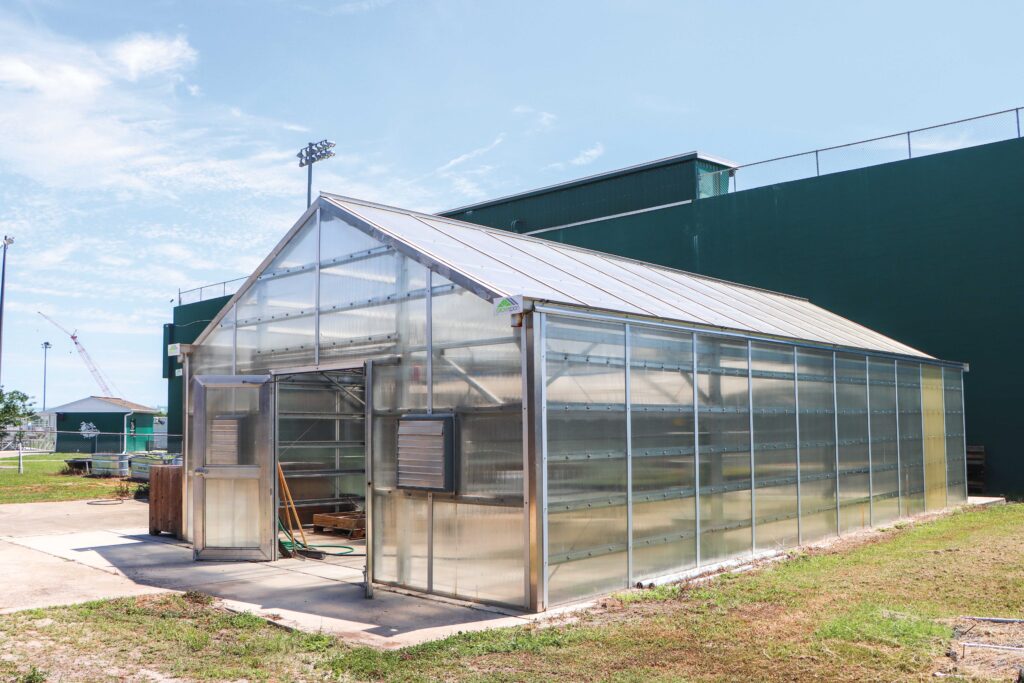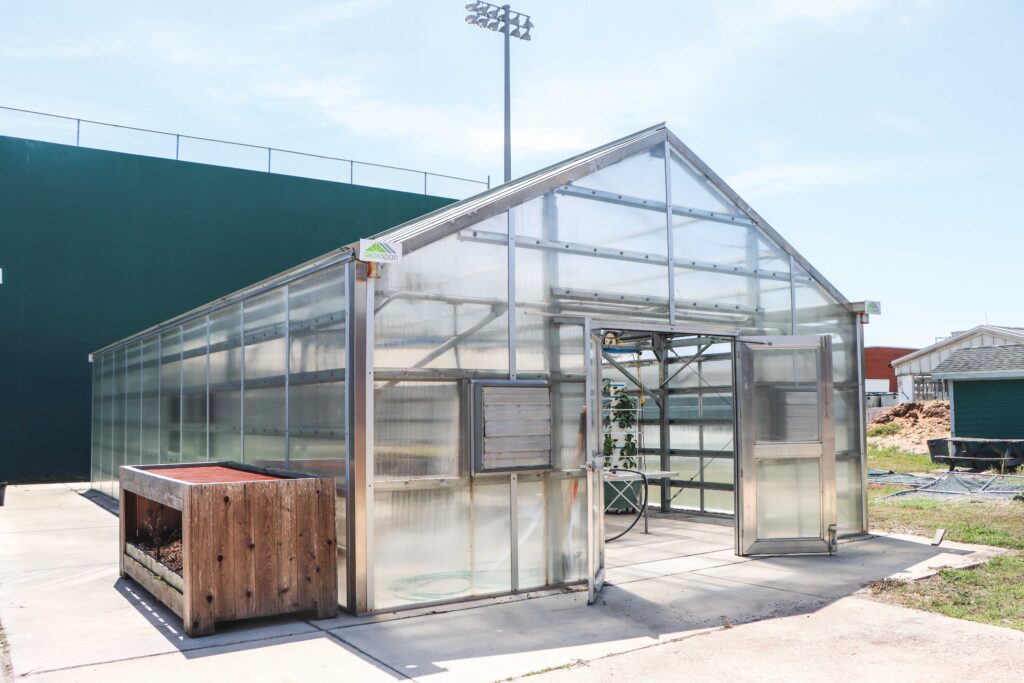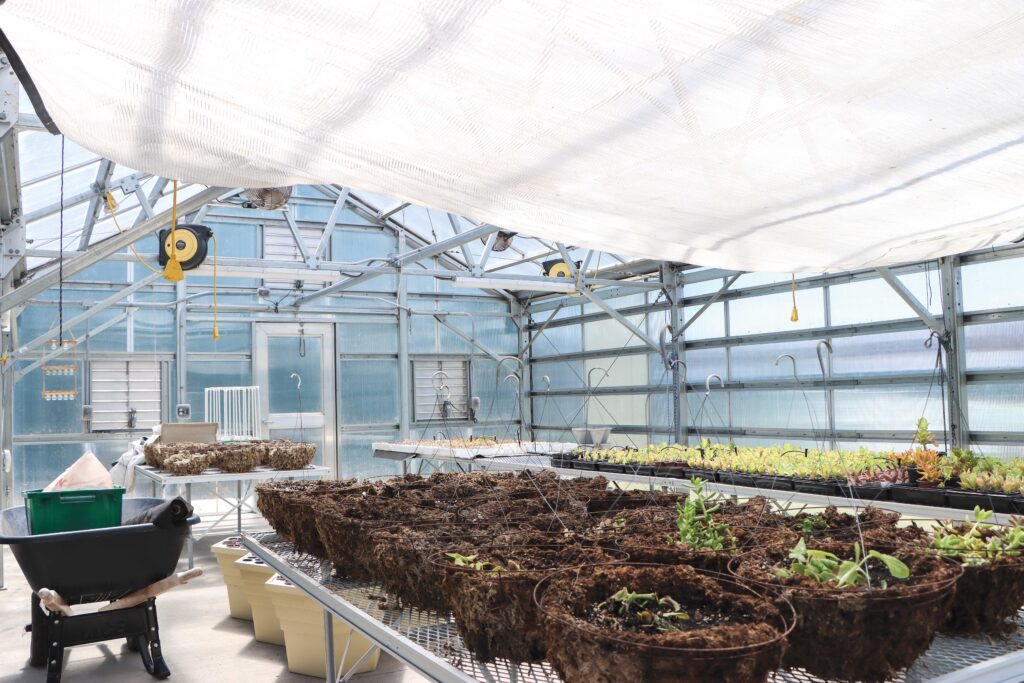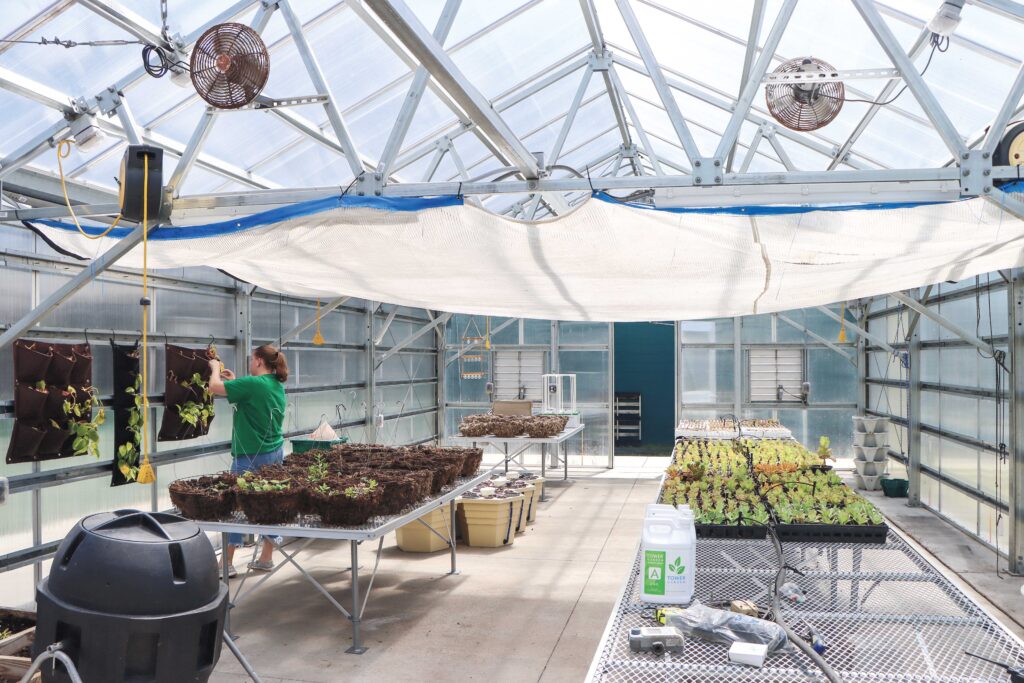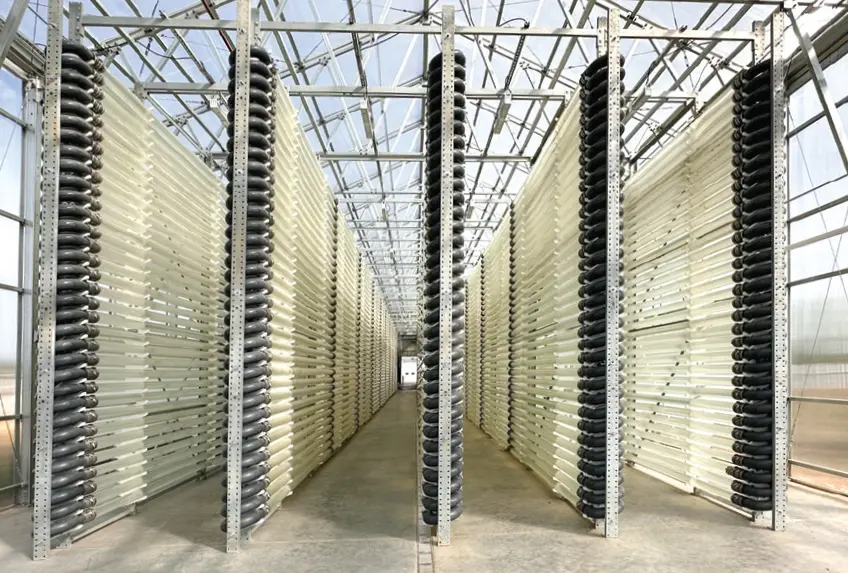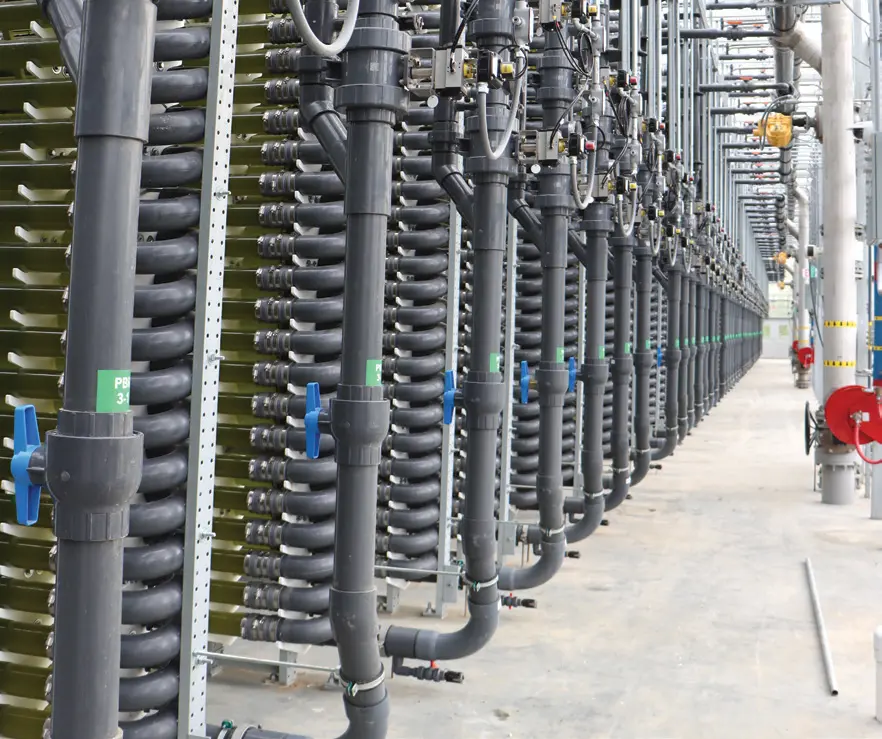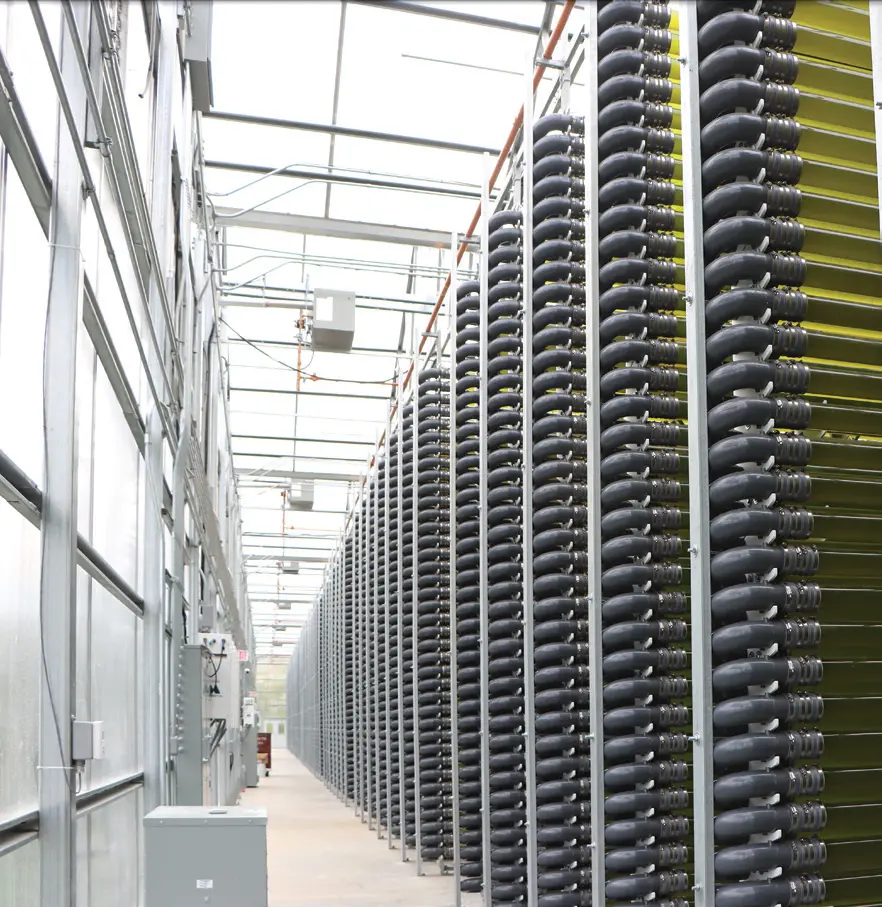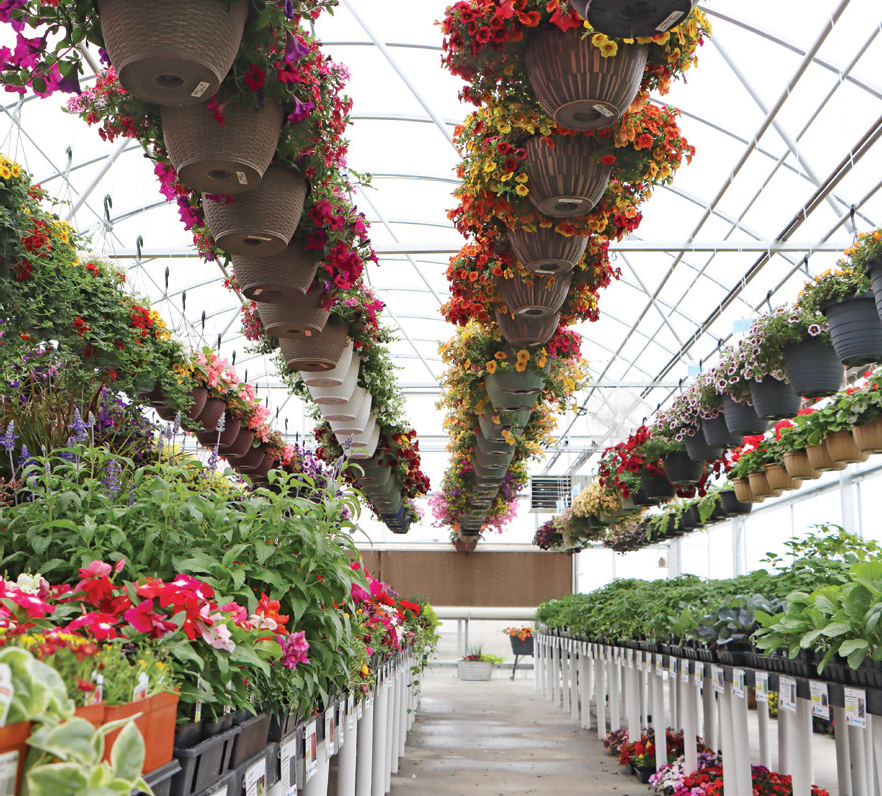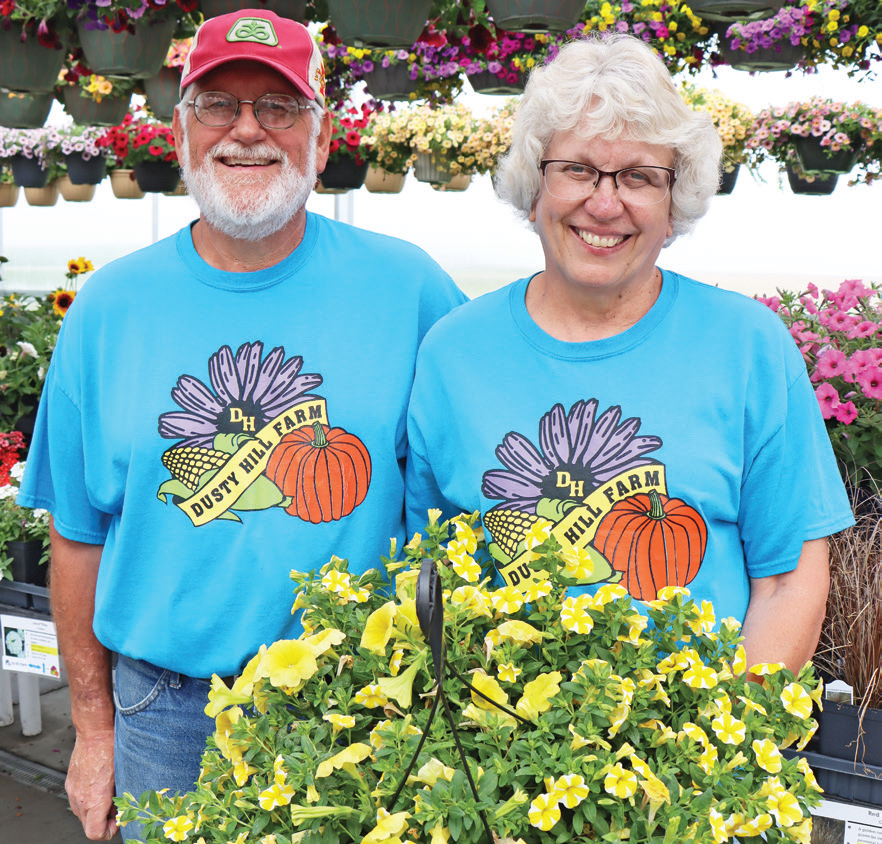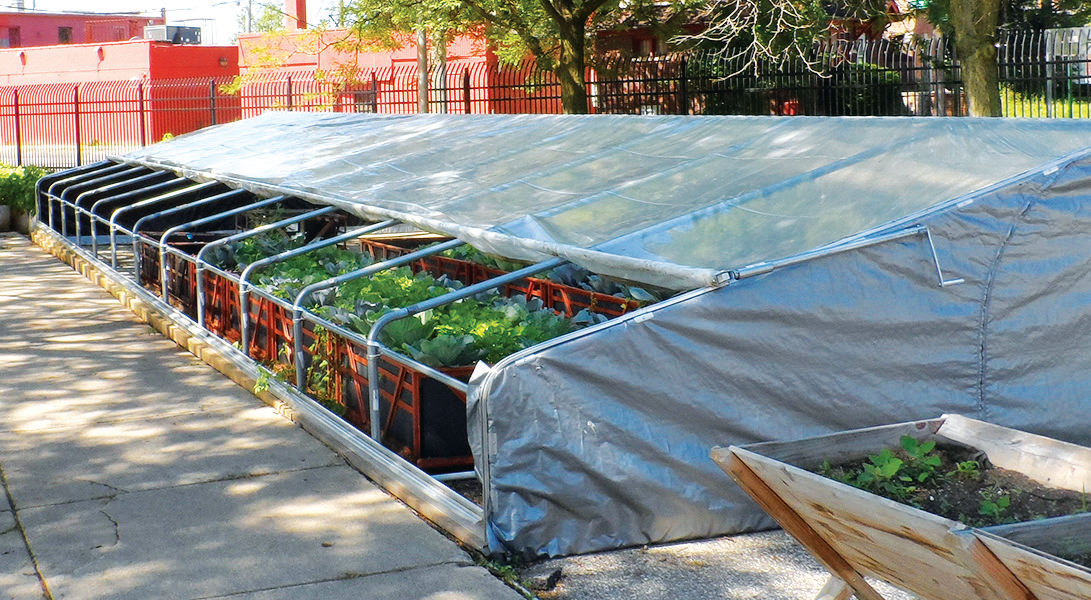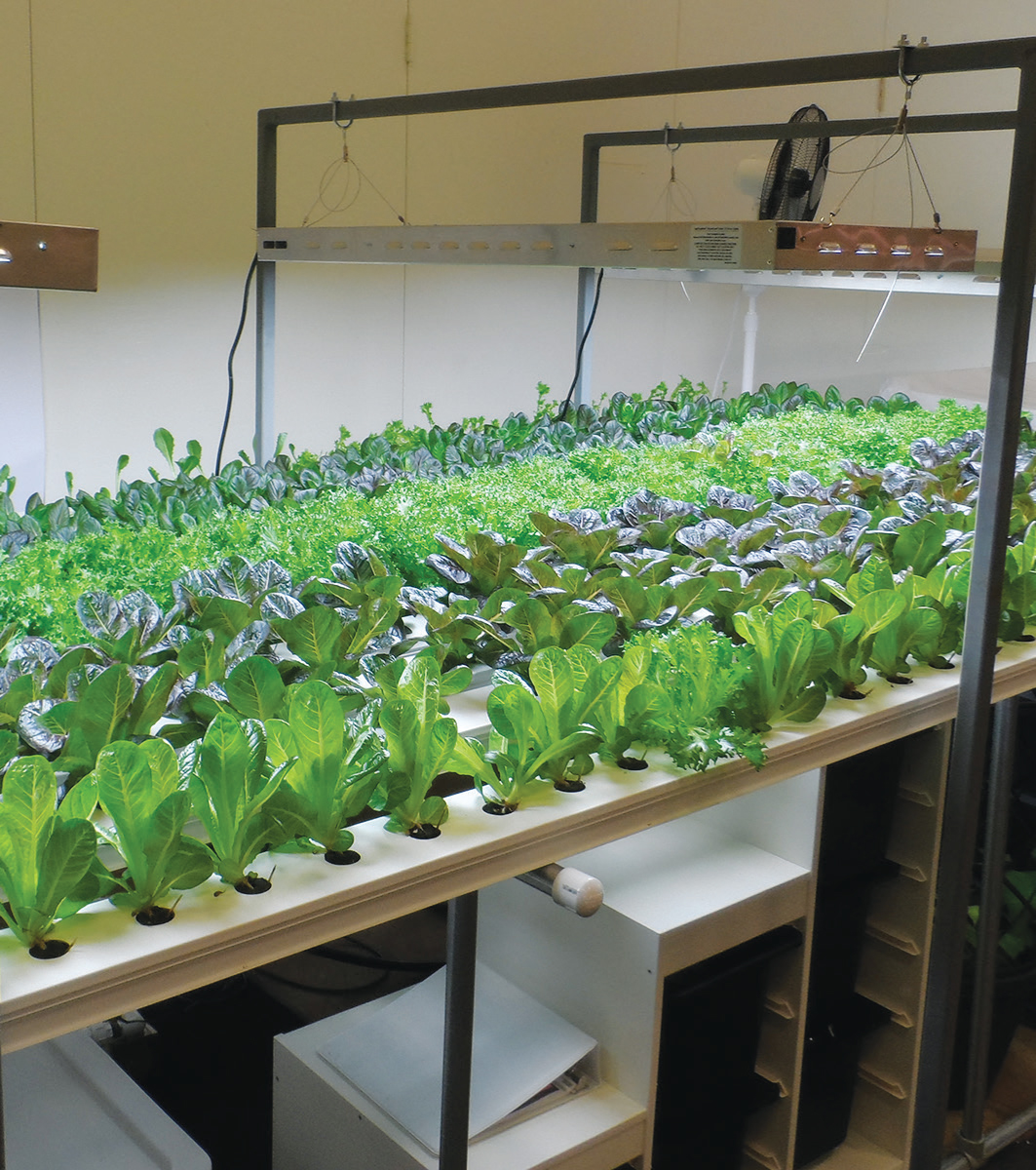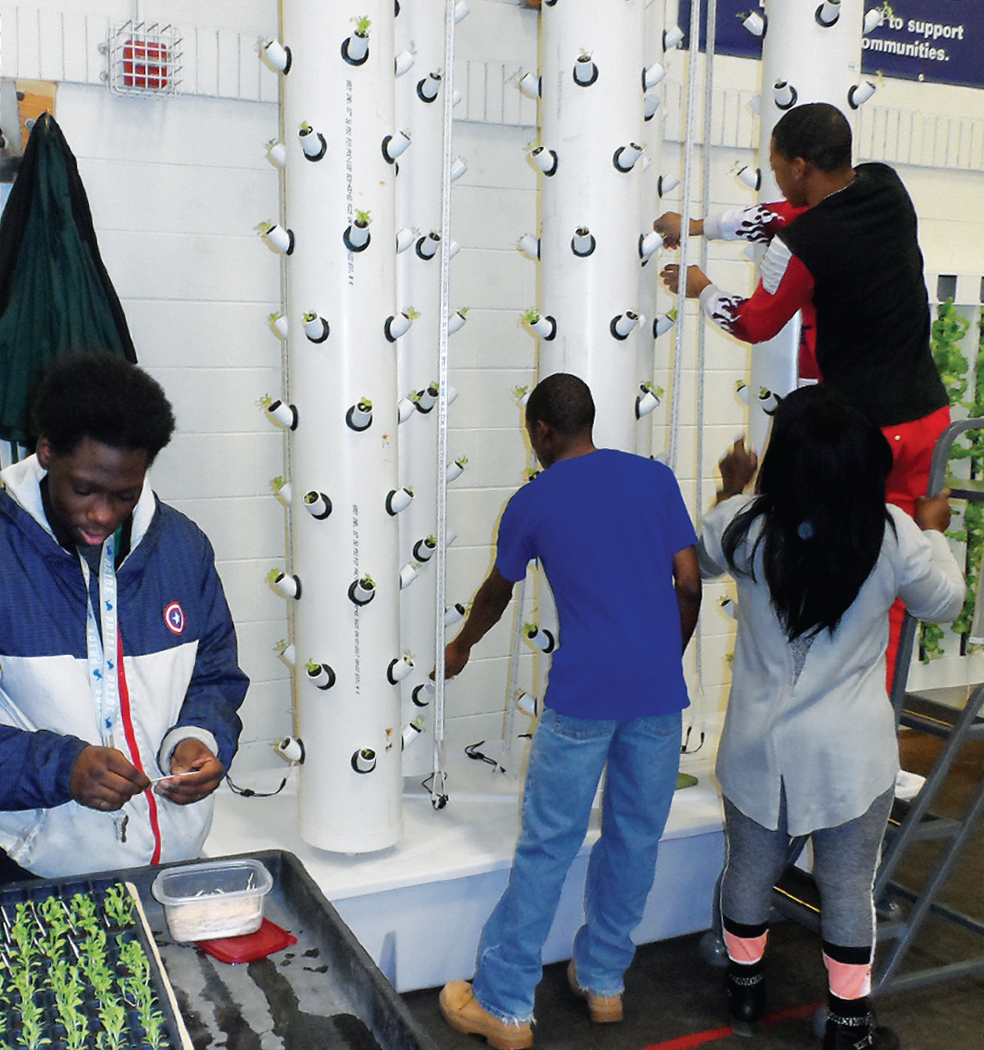Challenge – Enhancing agricultural education
Solution – GrowSpan Series 2000 Greenhouse
Size – 20′ wide x 40′ long
Application – Educational use for horticulture and hydroponics
Location – Palm Coast, FL.
At Flagler Palm Coast High School in Palm Coast, Florida, agricultural education has been a cornerstone of the curriculum for decades. As part of their Agriscience Foundations and Agritechnology classes, students are introduced to plant science, sustainable growing methods and a wide range of career opportunities in the industry. Since the implementation of the school’s GrowSpan Series 2000 Commercial Greenhouse, it has become a central component of that hands-on learning experience.
Maggie Reaves, Instructor of Agriscience Foundations and Agritechnology at Flagler Palm Coast High School, uses their greenhouse to immerse students in real-world growing environments. Inside, they sprout seeds, grow ornamental plants and explore hydroponic production methods alongside traditional soil-based techniques.
“The greenhouse is excellent for educational purposes,” said Reaves. “In addition to growing plants, I’m able to use events that happen naturally in the greenhouse as teaching opportunities, including irrigation issues, temperature fluctuations and more.”
The greenhouse not only exposes students to different crop types and growing systems, but it also supports a flexible learning environment that adapts to class size and project scope. With its 20′ wide by 40′ long footprint, Reaves can accommodate multiple student groups working on different projects, while maintaining clear oversight.
“My maximum class is 30 students, so this is the perfect size greenhouse for our agricultural program,” she said. “With various activities going on at the same time, it’s nice to be able to still keep tabs on everyone.”
Along with its functionality, Reaves has been impressed with the structure’s durability. “I’ve had zero issues with my greenhouse in the two years I’ve used it, and I know it’s been around a few additional years before me. It’s held up incredibly well in the Florida heat and humidity.”
As the program continues to grow, Reaves is excited to add more accessories to the greenhouse and expand on what it already offers. “I love our GrowSpan greenhouse,” said Reaves. “It’s a high-quality structure that’s easy to upkeep, and there are a lot of accessories and growing products available to make things as easy as you want.”
For more information on Flagler Palm Coast High School’s greenhouse and agricultural program, visit https://www.fpcbulldogs.com/academics/programs-of-study/technical-agricultural-operations.
